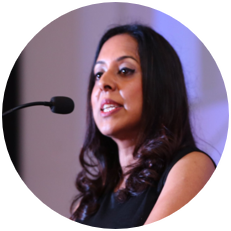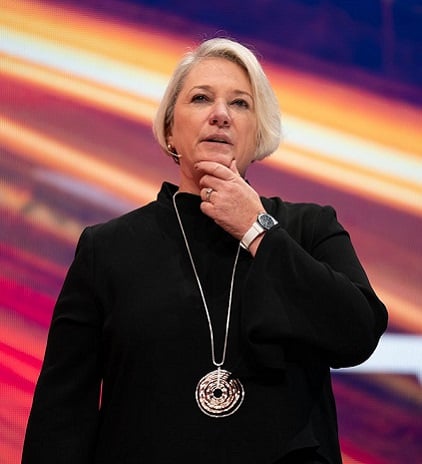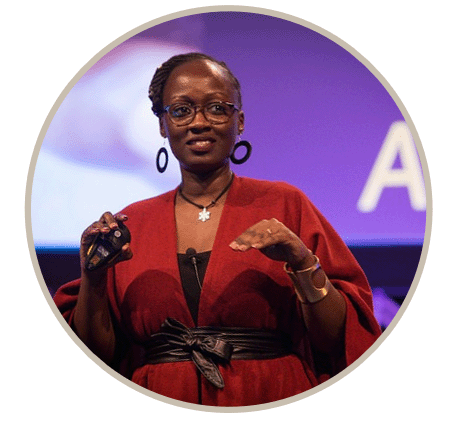-
Why Grant Thornton
Whether you’re growing in one market or many, looking to operate more effectively, managing risk and regulation, or realising stakeholder value, our firms can help.
-
Culture and experience
Grant Thornton’s culture is one of our most valuable assets and has steered us in the right direction for more than 100 years.
-
Global scale and capability
Beyond global scale, we embrace what makes each market unique, local understanding on a global scale.
-
Join our network
In a world that wants more options for high quality services, we differentiate in the market to grow sustainably in today’s rapidly changing environment.
-
Leadership governance and quality
Grant Thornton International Ltd acts as the coordinating entity for member firms in the network with a focus on areas such as strategy, risk, quality monitoring and brand.
-
Africa
24 member firms supporting your business.
-
Americas
31 member firms, covering 44 markets and over 20,000 people.
-
Asia-Pacific
19 member firms with nearly 25,000 people to support you.
-
Europe
53 member firms supporting your business.
-
Middle East
8 member firms supporting your business.
-
Business consulting services
Our business consulting services can help you improve your operational performance and productivity, adding value throughout your growth life cycle.
-
Business process solutions
We can help you identify, understand and manage potential risks to safeguard your business and comply with regulatory requirements.
-
Business risk services
The relationship between a company and its auditor has changed. Organisations must understand and manage risk and seek an appropriate balance between risk and opportunities.
-
Cybersecurity
As organisations become increasingly dependent on digital technology, the opportunities for cyber criminals continue to grow.
-
Forensic and investigation services
At Grant Thornton, we have a wealth of knowledge in forensic services and can support you with issues such as dispute resolution, fraud and insurance claims.
-
Mergers and acquisitions
We work with entrepreneurial businesses in the mid-market to help them assess the true commercial potential of their planned acquisition and understand how the purchase might serve their longer-term strategic goals.
-
Recovery and reorganisation
Workable solutions to maximise your value and deliver sustainable recovery.
-
Transactional advisory services
We can support you throughout the transaction process – helping achieve the best possible outcome at the point of the transaction and in the longer term.
-
Valuations
We provide a wide range of services to recovery and reorganisation professionals, companies and their stakeholders.

-
IFRS
At Grant Thornton, our IFRS advisers can help you navigate the complexity of financial reporting from IFRS 1 to IFRS 17 and IAS 1 to IAS 41.
-
Audit quality monitoring
Having a robust process of quality control is one of the most effective ways to guarantee we deliver high-quality services to our clients.
-
Global audit technology
Our global assurance technology platform provides the ability to conduct client acceptance, consultations and all assurance and other attestation engagements.

-
Corporate and business tax
Our trusted teams can prepare corporate tax files and ruling requests, support you with deferrals, accounting procedures and legitimate tax benefits.
-
Direct international tax
Our teams have in-depth knowledge of the relationship between domestic and international tax laws.
-
Global mobility services
Through our global organisation of member firms, we support both companies and individuals, providing insightful solutions to minimise the tax burden for both parties.
-
Indirect international tax
Using our finely tuned local knowledge, teams from our global organisation of member firms help you understand and comply with often complex and time-consuming regulations.
-
Transfer pricing
The laws surrounding transfer pricing are becoming ever more complex, as tax affairs of multinational companies are facing scrutiny from media, regulators and the public

-
 Banking Holding banking to account: the real diversity and inclusion pictureWe explore how the banking sector can continue to attract, retain and nurture women to build a more diverse and inclusive future.
Banking Holding banking to account: the real diversity and inclusion pictureWe explore how the banking sector can continue to attract, retain and nurture women to build a more diverse and inclusive future. -
 Sustainability From voluntary to mandatory ESG: How banks can future-proof their operationsAs we move from voluntary ESG initiatives to mandatory legislation, we explore what the banking sector needs to prioritise.
Sustainability From voluntary to mandatory ESG: How banks can future-proof their operationsAs we move from voluntary ESG initiatives to mandatory legislation, we explore what the banking sector needs to prioritise. -
 IFRS IFRS 9 - Audit of Expected Credit LossesGPPC releases The Auditor’s response to the risks of material misstatement posed by estimates of expected credit losses under IFRS 9
IFRS IFRS 9 - Audit of Expected Credit LossesGPPC releases The Auditor’s response to the risks of material misstatement posed by estimates of expected credit losses under IFRS 9 -
 growthiQ Steering your company to long-term successHistory has something important to tell us about the difficulties of steering a business to long-term success – through seismic shifts in technology, consumer demands and product development. With that in mind it’s unsurprising that over half the world’s largest companies in the early 1900s had shut their doors by the late 1990s. Some, however, have endured.
growthiQ Steering your company to long-term successHistory has something important to tell us about the difficulties of steering a business to long-term success – through seismic shifts in technology, consumer demands and product development. With that in mind it’s unsurprising that over half the world’s largest companies in the early 1900s had shut their doors by the late 1990s. Some, however, have endured.
-
 United States Driving an insurance carrier ecosystem strategyGrant Thornton’s Mathew Tierney, global head of Insurance, and Andrée Bourgon, principal for Insurance Strategy and Transactions, recently talked with John Weber of A.M. Best Co. for that company’s “Best’s Review” video series.
United States Driving an insurance carrier ecosystem strategyGrant Thornton’s Mathew Tierney, global head of Insurance, and Andrée Bourgon, principal for Insurance Strategy and Transactions, recently talked with John Weber of A.M. Best Co. for that company’s “Best’s Review” video series. -
 International Financial Reporting Standards Implementation of IFRS 17 ‘Insurance Contracts’The auditor’s response to the risks of material misstatement arising from estimates made in applying IFRS 17 ‘Insurance Contracts’
International Financial Reporting Standards Implementation of IFRS 17 ‘Insurance Contracts’The auditor’s response to the risks of material misstatement arising from estimates made in applying IFRS 17 ‘Insurance Contracts’ -
 IFRS Get ready for IFRS 17After twenty years of development the IASB has published IFRS 17 ‘Insurance Contracts’, find out more.
IFRS Get ready for IFRS 17After twenty years of development the IASB has published IFRS 17 ‘Insurance Contracts’, find out more.
-
 Global business pulse - industry analysis Mid-market recovery spreads to more industriesThe index results for 13 key industries of the mid-market reveals a very uneven recovery from COVID-19
Global business pulse - industry analysis Mid-market recovery spreads to more industriesThe index results for 13 key industries of the mid-market reveals a very uneven recovery from COVID-19 -
 Not for profit How to effectively leave the pandemic behindAs the light at the end of the COVID-19 tunnel shines brighter, nonprofits are assessing the past year’s impact on their businesses and are focusing on the next steps to achieve success in the year ahead.
Not for profit How to effectively leave the pandemic behindAs the light at the end of the COVID-19 tunnel shines brighter, nonprofits are assessing the past year’s impact on their businesses and are focusing on the next steps to achieve success in the year ahead. -
 Global business pulse - industry analysis A very uneven recovery across industriesThe index results for 13 key industries of the mid-market reveals a very uneven recovery from COVID-19
Global business pulse - industry analysis A very uneven recovery across industriesThe index results for 13 key industries of the mid-market reveals a very uneven recovery from COVID-19 -
 Global business pulse - Sector analysis Clear patterns of damage from COVID-19 across the industriesThe index results for 12 key sectors of the mid-market reveal just how much or little the various parts of the economy were impacted by COVID-19.
Global business pulse - Sector analysis Clear patterns of damage from COVID-19 across the industriesThe index results for 12 key sectors of the mid-market reveal just how much or little the various parts of the economy were impacted by COVID-19.
-
 Private equity ESG for private equityMost US private equity firms are taking steps, prompted by a combination of European examples, imminent regulation, limited partner expectations, and their own sense of what needs to be done.
Private equity ESG for private equityMost US private equity firms are taking steps, prompted by a combination of European examples, imminent regulation, limited partner expectations, and their own sense of what needs to be done. -
 Access to finance Raise finance to invest in changePrepare your business to raise finance to invest in change.
Access to finance Raise finance to invest in changePrepare your business to raise finance to invest in change. -
 Private equity firms Private equity in the mid-market: reshaping strategies for 2021When the global COVID-19 pandemic stormed across the globe in early 2020, the private equity sector was hit hard but deals are coming back to the market.
Private equity firms Private equity in the mid-market: reshaping strategies for 2021When the global COVID-19 pandemic stormed across the globe in early 2020, the private equity sector was hit hard but deals are coming back to the market. -
 Mid-market businesses Getting ready for private equity investmentOur specialists explore how private equity firms are now working with their portfolios and how the mid-market can benefit from investment.
Mid-market businesses Getting ready for private equity investmentOur specialists explore how private equity firms are now working with their portfolios and how the mid-market can benefit from investment.
-
 Public sector Helping build the government of tomorrow, todayLearn about the Grant Thornton US public sector team.
Public sector Helping build the government of tomorrow, todayLearn about the Grant Thornton US public sector team. -
 Global business pulse - industry analysis Mid-market recovery spreads to more industriesThe index results for 13 key industries of the mid-market reveals a very uneven recovery from COVID-19
Global business pulse - industry analysis Mid-market recovery spreads to more industriesThe index results for 13 key industries of the mid-market reveals a very uneven recovery from COVID-19 -
 Global business pulse - industry analysis A very uneven recovery across industriesThe index results for 13 key industries of the mid-market reveals a very uneven recovery from COVID-19
Global business pulse - industry analysis A very uneven recovery across industriesThe index results for 13 key industries of the mid-market reveals a very uneven recovery from COVID-19 -
 Global business pulse - Sector analysis Clear patterns of damage from COVID-19 across the industriesThe index results for 12 key sectors of the mid-market reveal just how much or little the various parts of the economy were impacted by COVID-19.
Global business pulse - Sector analysis Clear patterns of damage from COVID-19 across the industriesThe index results for 12 key sectors of the mid-market reveal just how much or little the various parts of the economy were impacted by COVID-19.
-
 Industries European Real Estate PodcastJessica Patel, Tax Partner at Grant Thornton UK speaks with tax partners and directors across the network to share their insights on the real estate market and some of the challenges.
Industries European Real Estate PodcastJessica Patel, Tax Partner at Grant Thornton UK speaks with tax partners and directors across the network to share their insights on the real estate market and some of the challenges. -
 Industries European Real Estate PodcastJessica Patel, Tax Partner at Grant Thornton UK speaks with tax partners and directors across the network to share their insights on the real estate market and some of the challenges.
Industries European Real Estate PodcastJessica Patel, Tax Partner at Grant Thornton UK speaks with tax partners and directors across the network to share their insights on the real estate market and some of the challenges. -
 Global business pulse - industry analysis Mid-market recovery spreads to more industriesThe index results for 13 key industries of the mid-market reveals a very uneven recovery from COVID-19
Global business pulse - industry analysis Mid-market recovery spreads to more industriesThe index results for 13 key industries of the mid-market reveals a very uneven recovery from COVID-19 -
 Global business pulse - industry analysis A very uneven recovery across industriesThe index results for 13 key industries of the mid-market reveals a very uneven recovery from COVID-19
Global business pulse - industry analysis A very uneven recovery across industriesThe index results for 13 key industries of the mid-market reveals a very uneven recovery from COVID-19
-

-
 Global business pulse - industry analysis Mid-market recovery spreads to more industriesThe index results for 13 key industries of the mid-market reveals a very uneven recovery from COVID-19
Global business pulse - industry analysis Mid-market recovery spreads to more industriesThe index results for 13 key industries of the mid-market reveals a very uneven recovery from COVID-19 -
 Global business pulse - industry analysis A very uneven recovery across industriesThe index results for 13 key industries of the mid-market reveals a very uneven recovery from COVID-19
Global business pulse - industry analysis A very uneven recovery across industriesThe index results for 13 key industries of the mid-market reveals a very uneven recovery from COVID-19 -
 Retail How retail is positioning for successCOVID-19 provided some hard lessons for the retail industry. It is time to turn those into sustainable and well executed growth strategies in 2021.
Retail How retail is positioning for successCOVID-19 provided some hard lessons for the retail industry. It is time to turn those into sustainable and well executed growth strategies in 2021.
-
 Telecoms Can tech and telecom leverage economic headwindsAs most businesses brace for an economic downturn, tech and telecom could see new prospects. But, to turn the headwinds to your advantage, you need to find your unique opportunities and risks.
Telecoms Can tech and telecom leverage economic headwindsAs most businesses brace for an economic downturn, tech and telecom could see new prospects. But, to turn the headwinds to your advantage, you need to find your unique opportunities and risks. -
 Technology Mid-market tech companies lead the way on diversity and inclusionWe explore how the mid-market tech sector can continue to build and nurture a culture that’s increasingly more diverse and inclusive for women.
Technology Mid-market tech companies lead the way on diversity and inclusionWe explore how the mid-market tech sector can continue to build and nurture a culture that’s increasingly more diverse and inclusive for women. -
 Tax Eight tax approaches for global tech employeesCompanies need to understand the tax implications for each unique geography and country there employees reside in.
Tax Eight tax approaches for global tech employeesCompanies need to understand the tax implications for each unique geography and country there employees reside in. -
 Technology Responding to slowing growth: why the tech industry faces a more challenging outlook in 2022We spoke to tech experts about industry trends that could affect companies over the next 12 months and what their short-term strategic priorities should be.
Technology Responding to slowing growth: why the tech industry faces a more challenging outlook in 2022We spoke to tech experts about industry trends that could affect companies over the next 12 months and what their short-term strategic priorities should be.
-
 Telecoms Can tech and telecom leverage economic headwindsAs most businesses brace for an economic downturn, tech and telecom could see new prospects. But, to turn the headwinds to your advantage, you need to find your unique opportunities and risks.
Telecoms Can tech and telecom leverage economic headwindsAs most businesses brace for an economic downturn, tech and telecom could see new prospects. But, to turn the headwinds to your advantage, you need to find your unique opportunities and risks. -
 TMT TMT industry: Fully charged or on standby?Our research revealed five key trends that resonated with Technology, Media and Telecoms (TMT) industry leaders around the world. We asked a panel of our experts from UK, US, India Ireland and Germany, to give us their reaction to the findings.
TMT TMT industry: Fully charged or on standby?Our research revealed five key trends that resonated with Technology, Media and Telecoms (TMT) industry leaders around the world. We asked a panel of our experts from UK, US, India Ireland and Germany, to give us their reaction to the findings. -
 Cybersecurity One size fits nothingTechnology companies must adopt a new approach to digital risk: those that successfully develop a reputation for digital trust by demonstrating an unwavering commitment to cyber security and data privacy will be able to carve out a competitive advantage.
Cybersecurity One size fits nothingTechnology companies must adopt a new approach to digital risk: those that successfully develop a reputation for digital trust by demonstrating an unwavering commitment to cyber security and data privacy will be able to carve out a competitive advantage. -
 Technology, media & telecommunications Why it’s time for a 5G reality checkFigures suggest the mobile sector is maturing. While data usage continues to soar, mobile revenues are expected to flatten out over the next few years.
Technology, media & telecommunications Why it’s time for a 5G reality checkFigures suggest the mobile sector is maturing. While data usage continues to soar, mobile revenues are expected to flatten out over the next few years.
-
 International business Mid-market businesses lifted by rising tide of optimismOptimism among global mid-market business leaders rose to 67% in the first half of this year and they are markedly more optimistic about their prospects with global optimism having increased by 8%.
International business Mid-market businesses lifted by rising tide of optimismOptimism among global mid-market business leaders rose to 67% in the first half of this year and they are markedly more optimistic about their prospects with global optimism having increased by 8%. -
 Global business pulse - industry analysis Mid-market recovery spreads to more industriesThe index results for 13 key industries of the mid-market reveals a very uneven recovery from COVID-19
Global business pulse - industry analysis Mid-market recovery spreads to more industriesThe index results for 13 key industries of the mid-market reveals a very uneven recovery from COVID-19 -
 Hotels COVID-19: Checking in with the hotel industry one year onCOVID-19 provided some hard lessons for the hotel sector. It is time to turn those into sustainable and well executed growth strategies.
Hotels COVID-19: Checking in with the hotel industry one year onCOVID-19 provided some hard lessons for the hotel sector. It is time to turn those into sustainable and well executed growth strategies. -
 Global business pulse - industry analysis A very uneven recovery across industriesThe index results for 13 key industries of the mid-market reveals a very uneven recovery from COVID-19
Global business pulse - industry analysis A very uneven recovery across industriesThe index results for 13 key industries of the mid-market reveals a very uneven recovery from COVID-19
- By topic
-
Women in Business 2024
2024 marks the 20th year of monitoring and measuring the proportion of women occupying senior management roles around the world.
-
COP28: Mid-market firms should seize the opportunity from adaption and innovation
COP28 was the first time there has been a global stocktake on progress against the Paris Agreement.
-
Scanning the horizon: Mid-market sets sights on global trade growth
The latest International Business Report (IBR) data shows that mid-market businesses have high expectations for global trade.
-
Mid-market businesses less optimistic, despite record numbers expecting increased profitability
A closer examination of the data offers some explanation of this apparent contradiction.
-
Women in Business 2024
2024 marks the 20th year of monitoring and measuring the proportion of women occupying senior management roles around the world.
-
Women in business across the globe
Without a greater focus on the issue, women’s parity in senior management won’t be reached until 2053 at the current rate.
-
Women in business: Regional picture
We saw an increase in the percentage of senior management roles held by women, on a global level, but there are some significant regional and country variations.
-
Pathways to Parity: Leading the way
To push towards parity of senior management roles held by women, who leads within an organisation is vital.
-
Generating real change with a long-term focus
The most successful strategy to achieve parity of women in senior management is one which stands alone, independent of an ESG strategy.
-
People at the heart of great business
Businesses have started to put guidelines and incentives in place, focused on driving employees back to the office.
-
Building a culture that champions diversity
Grant Thornton UAE has grown to have a team comprising more than 50 nationalities and this diverse staff has been key in building the inclusive culture of the firm.
-
Focusing and developing a solid strategy around diversity, equity and inclusion
Grant Thornton Greece is pioneering a growing set of diversity, equity and inclusion (DE&I) initiatives that centre around three strategic pillars.
-
Ten considerations for preparing TCFD climate-related financial disclosures
Insights for organisations preparing to implement the International Sustainability Standards Board (ISSB)’s Standards.
-
COP28: Mid-market firms should seize the opportunity from adaption and innovation
COP28 was the first time there has been a global stocktake on progress against the Paris Agreement.
-
Transition Plan Taskforce publishes its final disclosure framework
As organisations in the private sector make commitments and plans to reach net zero, there's a growing need for stakeholders to be able to assess the credibility of their transition plans.
-
Promoting ESG excellence through tax
ESG considerations have never been more important for an organisation’s long-term success, but how can tax be used to add value to an ESG agenda?
-
The US mid-market
As mid-markets concerns about a possible global recession have receded, leaders’ expectations for increases in their profits are at an all-time high.
-
Mid-market businesses lifted by rising tide of optimism
Optimism among global mid-market business leaders rose to 67% in the first half of this year and they are markedly more optimistic about their prospects with global optimism having increased by 8%.
-
Appetite for investment grows among mid-market leaders
Mid-market business leaders plan to increase investment over the next 12 months, specifically in technology, research and development and staff.
-
Scanning the horizon: Mid-market sets sights on global trade growth
The latest International Business Report (IBR) data shows that mid-market businesses have high expectations for global trade.
-
IFRS Alerts
IFRS Alerts covering the latest changes published by the International Accounting Standards Board (IASB).
-
Example Financial Statements
General guidance for preparers of financial statements that supports the commitment to high quality, consistent application of IFRS.
-
Insights into IFRS 2
Insights into IFRS 2 summarises the key areas of the Standard, highlighting aspects that are more difficult to interpret and revisiting the most relevant features that could impact your business.
-
IFRS 3
Mergers and acquisitions are becoming more common as entities aim to achieve their growth objectives. IFRS 3 ‘Business Combinations’ contains the requirements for these transactions.
-
IFRS 8
Our ‘Insights into IFRS 8’ series considers some key implementation issues and includes interpretational guidance in certain problematic areas.
-
IFRS 16
Are you ready for IFRS 16? This series of insights will help you prepare.
-
IAS 36
Insights into IAS 36 provides assistance for preparers of financial statements and help where confusion has been seen in practice.
-
IFRS 17
Explaining the key features of the Standard and providing insights into its application and impact.
-
Pillar 2
Key updates and support for the global implementation of Pillar 2.
-
Global expatriate tax guide
Growing businesses that send their greatest assets – their people – overseas to work can face certain tax burdens, our global guide highlights the common tax rates and issues.
-
International indirect tax guide
Navigating the global VAT, GST and sales tax landscape.
-
Global transfer pricing guide
Helping you easily find everything you need to know about the rules and regulations regarding transfer pricing and Country by Country reporting for every country you do business with.
 Self-described disruptive thinker, memetic engineer and talent ecosystem enricher Vandana Saxena Poria OBE FCA gives her perspective on how true business inclusivity can be achieved, both in India and across the globe.
Self-described disruptive thinker, memetic engineer and talent ecosystem enricher Vandana Saxena Poria OBE FCA gives her perspective on how true business inclusivity can be achieved, both in India and across the globe.
An inclusive business culture, for me, is a culture of belonging and respect. It is where people feel comfortable sharing their views, knowing that others honour different perspectives. It means regardless of background, everyone is working towards the same goals and so engagement levels amplify.
I think one of the main challenges in creating belonging is the fear of the unknown. People often find it difficult to open up to others, or be vulnerable with those they see as ‘different’. And therein lies the problem. Every single person comes to work every day with years of experiences that make them who they are today. Are we tapping into that effectively?
So the key to dissolving this is simple – open up to a much greater mix of people on a deeper level. One of the best techniques I was ever taught was by Common Purpose (CP). There were 40 leaders, ranging from MNCs and entrepreneurs, to Government and NGOs. Every day we were asked to pick someone we didn’t know well and do a 10-minute dialogue walk with them, where we didn’t talk about work, but about how we came to be here today.
A bit daunting at first, it soon became one of the most interesting exercises because every single person was fascinating. We would share high points, low points and life experiences. Through this, automatically we would see the person’s strengths shine through, and learn about how they dealt with challenges.
When it then came to doing projects within the CP course, we suddenly saw a different dimension of each person’s background and talents, so had a greater pool of people to ideate and work with. A simple exercise like this, carried out in the office every day, would make a huge difference. The cost? 10 minutes a day? The benefit? Priceless.
Having the courage or environment that allows for calling out unconscious bias is crucial. This is a mindset change and therefore doesn’t happen overnight. Exercises for unconscious bias should be ongoing, innovative ways for people to reflect on their biases, in a non-judgemental way.
I did a TEDx where I built a scenario of a world that had always been 80% dominated by women. In independent workshops, I asked different groups of people (professional men/women, millennial men) how they thought that world would operate in terms of business, relationships, law, and society.
The idea was not to create a ‘right’ version of what this world would look like, but what deeply held biases are within these groups of individuals. This was conducted in India and the professional men said that they felt that women would be so into their own self-development that children and old people would not be looked after.
They were quite shocked when they saw that both millennial men and women painted a picture of better business and happier families through greater inclusivity. The women’s focus was on creating stability for everyone. When the men reflected, they could see their biases coming out – that in their inner sub conscious the role of a woman was as primary care-giver and if they were doing anything else, that interfered with that primary role.
At the end of the day inclusivity is resonating with the people around you. The more you understand them, the more engagement, understanding of core values and unique talents. This is where you get to see true “gestalt”, where the whole becomes something else than the sum of the parts, leading to untold innovation and growth.
At the risk of being controversial, I want to call something out. Women only got the vote 100 years ago. Women’s views in the workplace were not counted until much more recently. Everything was set up to work for men and their convenient hours. That’s not a good or bad statement: it is just the way it was. Our office hours, expected performance levels and working practices were built to serve a different society.
Unfortunately, while society has changed, these factors have not. So at the outset, can we acknowledge that women are expected to match this way of working, regardless of any other responsibilities they have? So, I feel that this is systemic and it will always be difficult for women to have work/life effectiveness, as society is set up in such a way that the odds are against us.
What we need is a major rethink! Let’s really rethink and re-imagine workplaces that work for all, not the dominant majority. And that will take courage, but I think is going to cause a greater impact than these small-scale policy changes that are happening at the moment.
What could these changes be? Survey after survey has shown that a balanced homelife contributes to everyone in the workplace performing better. Having spent the last 20 years running leadership, coaching and mentoring for a wide variety of people, I’ve realised so many of their best skills are not even known in the workplace. Value is placed on activities that only happen in the workplace, where many may not have the opportunity to showcase all their skills, indeed even be aware of all their skills.
Becoming a mother taught me more patience and empathy than anything else in life. Managing two kids as a single mother took multi-tasking to a whole new level. Working voluntarily to mentor entrepreneurs and women has shown me how to view different perspectives. So how about demonstrating that each employee is holistic in accountability and responsibilities?
Someone who takes responsibility at home is also likely to be reliable in the workplace. Someone who is compassionate about challenges at home is likely to have the ability to be compassionate in the workplace. Someone who values home life or service to others is likely to be a leader with character. So, how about having external contribution including at home being a key part of the appraisal at work?
In countries like India it would help men understand what it takes to multi-task the way that women have to, and perhaps be more empathic to the challenges. It would also help them see and value a completely different set of skills.
I hope some people got a chill reading that and some people nodded vigorously. Whichever way you fall, it is something to reflect on. What if a system like that existed? How would we all size up and would we make other choices? And what would become the future direction of work if our appraisals valued all contribution, not just contribution to dollars on the bottom line?
Read our Women in business report Return to Champions home page








































